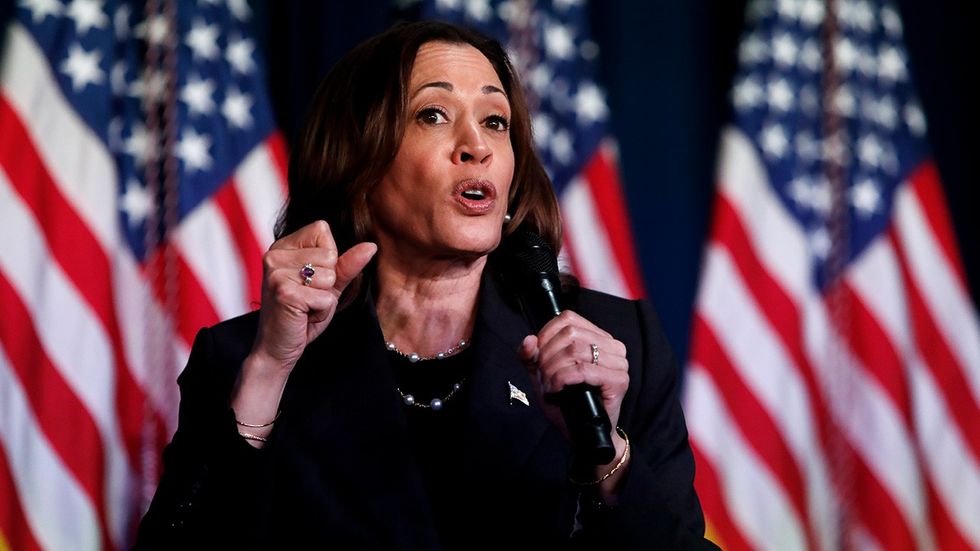Neither Kamala Harris or Donald Trump hold significant polling leads in the states that will decide this election. However, at this stage of the election evidence suggests that Trump has the best data going into polling day than he did in both 2016 and 2020.
The 2024 Real Clear Politics (RCP) average of all of the national polls one day prior to the election puts the race at a tie, compared with Biden leading by 6.9% in 2020 and Hillary Clinton leading by 3.2% in 2016. In these two elections the results turned out eerily similar to the polling, while simultaneously underestimating Trump’s support: Biden won by 4.5% and Hillary by 2.1% respectively. All of the signs are that Trump has a very good chance of winning tomorrow. Here is why.
Seven states will determine the Presidency this year. The swing states are: Nevada, Arizona, Georgia and North Carolina (known as the Sun Belt, for they are relatively southern), as well as Wisconsin, Michigan and Pennsylvania (the Rust Belt, named after their previous manufacturing might).
According to the polling aggregator Five Thirty Eight, Trump is narrowly ahead in three of the Sun Belt states, Arizona, Georgia and North Carolina, all of which have leaned Republican in the past.

Kamala Harris is struggling to win black men
Getty
Meanwhile Kamala is leading in Wisconsin and Michigan, which normally lean Democrat (other than when Trump won them in 2016) and is tied in Nevada.
The key state that will likely decide this election is Pennsylvania, and here both candidates are in a dead heat according to the pollster.
Kamala Harris’s most likely path to winning is to hold the Democratic Blue Wall in the Rust Belt that Hillary lost so disastrously. Even if Donald Trump wins the four other swing states holding the Blue Wall would be enough to keep Kamala in the White House.
The problem for Harris’s campaign is that there are serious warning signs that she could lose at least one, and perhaps all three. Early voting data shows that the turnout among Democrats in Pennsylvania is significantly down from four years ago, while the Republicans have either increased their turnout or kept it steady.
 “Trump will win. All the momentum is with Trump right now,” Greg Swenson saidGETTY
“Trump will win. All the momentum is with Trump right now,” Greg Swenson saidGETTYMeanwhile in Michigan a series of endorsements for Donald Trump from leading Muslim politicians have given him an edge in the state which has a sizable Muslim minority. Like in Britain the issue of Gaza has spurred on tens of thousands of voters who feel betrayed by their ostensive liberal allies. Muslims are enraged at the Biden-Harris administration’s military support for Israel, even though Trump’s rhetoric has actually been far more in favour of America’s Middle Eastern ally than Harris’.
The RCP average of polls in both Michigan and Wisconsin have Kamala Harris ahead, but only just. In Michigan her lead is 1.4%, while in Wisconsin she is ahead by just 0.4%.
Polls have consistently underestimated Trump’s support in the past, perhaps due to the issue of Trump voters being too embarrassed to admit they are voting Republican to a pollster or because they are harder to reach. This could mean that Trump is about to win all seven swing states, leading to an electoral college landslide.
If there is a similar Trump correction on polling day, as we saw in 2020 and 2016, he would also win the popular vote. If so, he would be the first Republican to do so since 2004 and the second since 1988.
The main issues facing Americans suggest he will win too. Inflation has rocketed in the last four years, leading to significant price hikes in food and petrol.
Illegal immigration, Trump’s trump card, has been a catastrophe over the last four years. Though estimates vary, it is widely accepted that millions of illegal aliens have poured into America under Joe Biden and Kamala Harris’s watch, leading to terrible examples of migrant crime and downward pressure on wages.
The last time an incumbent President stood down before his potential reelection was in 1968 when Lyndon Johnson gave up the Democratic nomination. His replacement, the liberal Hubert Humphrey, went on to lose to Richard Nixon.
Kamala Harris is not a strong candidate. She struggles in interviews and in unscripted moments. Her record as a part of the Biden administration is hard to defend.
However, her hopes rest on two factors. The first is abortion; Ever since Trump’s Supreme Court overruled Roe vs Wade, thereby ending the nationwide legalisation of abortion, the Democrats’ base has been highly motivated to vote. In the 2022 midterm elections, which should have been a Republican Red Wave, Democrats voted in large numbers due to what they call the issue of ‘reproductive rights’.
Her second weapon is Trump himself. Her entire campaign has focussed on her opponent who she is banking on being more unpopular than herself. She has attempted to remodel herself as the ‘change’ candidate by contrasting herself with Trump. ‘Let’s move on from the Trump madness’ is her pitch in essence. With so many Americans unhappy with the direction of the country, it has been vital for Harris to get Americans to forget that she has been in the White House for the last four years.
While the signals are that Trump has a very good chance of winning tomorrow, much of the election could rest on who has the better get-out-the-vote operation. Kamala Harris has outraised Trump by large margins and is hoping her financial advantage will tip her over the line.
However, given the momentum in key swing states and the historical underestimation of his support in polls, all signs indicate that Donald Trump may be poised for a decisive victory.